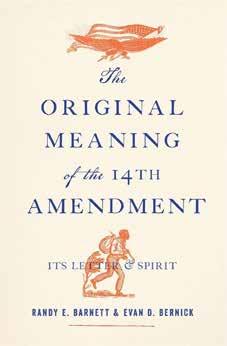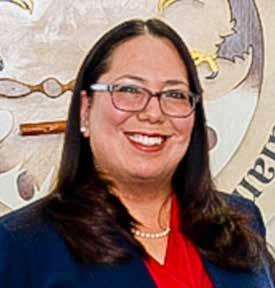Judicial Profile
Hon. Frank Pommersheim
Associate Justice, Rosebud Sioux Supreme Court by Hon. Charles Abourezk
T
Charles Abourezk is the current chief justice of the Rosebud Sioux Tribe Supreme Court, retired chief judge of the Oglala Sioux Tribal Court, and retired justice of the Oglala Sioux Nation Supreme Court. He is a documentary filmmaker and former trial lawyer. © 2022 Charles Abourezk. All rights reserved.
he 1960s and 1970s were a different time in America, tending toward inclusiveness and empathy. President Lyndon Johnson and the Congress initiated the War on Poverty, which included programs that perpetuated the idea that young Americans should reach out to the world and to our own forgotten and often poverty-stricken citizens in our inner cities, rural America, and Indian reservations around the country through the Volunteers in Service to America (VISTA), the Peace Corps, and other programs. Many young Americans heeded the call to join this effort, just as the Vietnam war was escalating, which also caused a mobilization of Americans opposed to the war and seeking to play a more constructive role in the United States and the world. A young Frank Pommersheim was the embodiment of the political and empathetic spirit of these times. After law school, Justice Pommersheim made a commitment to move to Alaska, where he became a VISTA attorney in a small community that was largely populated by American Indians and Alaska Natives. Although hearing from a fundamentalist minister upon his arrival that the Indigenous people there were “fundamentally evil,” Justice Pommersheim plunged into the culture and society during his time in Alaska. He worked closely with the Indigenous community, and developed many friendships, finding an “incredible warmth and generosity.” Justice Pommersheim was quite drawn to what he learned about the culture there, and to the social structure of the Native community. When he learned of an opening with the tribally operated college on the Rosebud Sioux Indian Reservation, he and his wife, Anne Dunham, moved there and lived on the reservation in South Dakota for 10 years. He had never owned a car in his life, but he and Anne bought a Chevy Nova and drove with their belongings from New York City to South Dakota. He first worked for Sinte Gleska University, one of the first tribally operated colleges in the nation, as a legal advisor and professor. After seven years with Sinte Gleska, he went to work for the legal services office on the reservation, later becoming director of the statewide legal services program. He wrote two books
while there, including Broken Ground and Flowing Waters and Reservation Street Law, co-written with the previous legal services director, Anita Remerowski. This was the beginning of a long and prominent career as an author and expert in the field of federal Indian law. This unexpected career grew from his profound experiences in Alaska and Rosebud. “There was just this openness and generosity I found in both Alaska and Rosebud,” Justice Pommersheim said. “It was so different from both the stereotypes of Indians I had heard, and very different from the places where I grew up.” “As I learned in Rosebud, everything is based upon relationships, which is a beautiful way to organize society. The Lakota concept of making a relative [the hunka adoption ceremony] is a beautiful recognition of the extension of relationship building,” said Justice Pommersheim. “This often doesn’t exist in western tradition.” Expanding on the generosity he found on the reservation, Justice Pommersheim also reflected on the idea of the giving away of gifts at important moments in one’s life, rather than receiving gifts. “This concept is a much more inclusive, non-selfish and generous way to be. It had a powerful influence on me,” Justice Pommersheim said. March/April 2022 • THE FEDERAL LAWYER • 19










